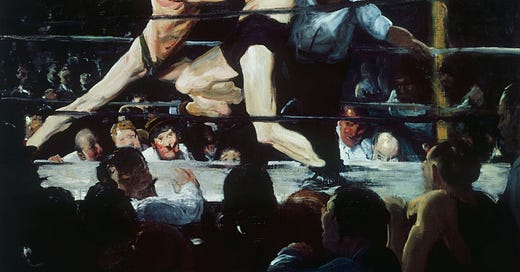
The Free Press

Last week, days after turning 34, my barber earnestly asked for the first time if he could trim my eyebrows. This was devastating. Wild eyebrow growth is the mark of an aging man. How did I get so old so quickly?
Stray follicles aside, most people tell me I look a little younger than my true age. Research suggests that most people feel a few years younger than their actual age, but I feel exactly mine. Perhaps that’s because I’ve lived as much life as someone considerably older.
I grew up in foster homes in Los Angeles. I fled as soon as I could by enlisting in the military at age 17, and obtained degrees in psychology from Yale and Cambridge thanks to the G.I. Bill and scholarships. I’m pretty certain I was the only one of my classmates who was living out of garbage bags at age seven and smoking weed at age nine.
When you don’t have role models or structure, you learn a lot of lessons for yourself. Or at least that’s how it was for me. So on the first of the year, with 365 days laid out before us, consider these 34 lessons I’ve learned from growing up in dysfunction and deprivation—and climbing out of it.
1. You are what you do. Not what you say or what you believe. People use words to strategically justify their actions and blind you to who they really are. Don't be fooled by cheap talk. Pay close attention to how people actually spend their time and effort.
2. Don't give unsolicited advice. Advice-giving inherently implies unequal status. Unless people explicitly relinquish claims to equal status by asking for advice, offering it will cultivate resentment.
3. You don’t look like your favorite photos of yourself. When you say “that’s a bad photo of me” what you mean is “this is how I look to everyone else.”
4. Have friends outside of your profession.
5. Events, both good and bad, are more often enjoyable when they become memories.
6. Getting punched in the face once permanently reduces your fear of it happening again.
7. Buy multiples of common-use items. Nail clippers, scissors, screwdrivers, lighters, tape, etc. Spending a little extra to put one in each room is better than searching every room, drawer, and cupboard when the need arises.
8. Read at least ten pages of a book every morning. It doesn’t have to be the same book. Just start by building the habit.
9. Keep at least fifty bucks in your wallet.
10. When seeking advice, ask people in a different life station than you—ahead or behind, older or younger. People in the same position are often biased by envy, and this can color the advice they give.
11. Good conversations are made up of questions. Avoid speaking for longer than three minutes without asking one.
12. Envy knows many disguises.
13. The qualities young women generally favor for male friends: athleticism and success. The quality young men generally favor in female friends: physical attractiveness.
14. Just as not all romantic relationships are meant to last, neither are all friendships.
15. Drink less.
16. Reading a poorly written book will remind you to appreciate well-written books.
17. Greed is better than envy. Greed means you want more for yourself. Envy means you want others to have less.
18. Sleep with your phone in another room. Or at least out of reach.
19. Be strict with yourself and forgiving of others.
20. Consciously exercise gratitude. For a shortcut to instantly improve your mood: envision plausible scenarios in which your life right now could be far worse.
21. Don’t be the smartest person in the room.
22. People are busy, distracted, and tired. Always follow up.
23. Listen to archived episodes of Loveline with Dr. Drew Pinsky and Adam Carolla. I grew up without a father; these guys basically fulfilled that role at a distance for me during my adolescence in the 2000s.
24. Poor people pretend to be richer than they are, and rich people pretend to be poorer than they are.
25. Your choices shape your identity, not the other way around.
26. At funerals, people don’t talk about the accomplishments of the deceased. They talk about their character.
27. Originality is impossible. Just because it’s been said before doesn’t mean it’s not worth saying again.
28. Be kind, but always have a “fuck off” chambered and ready to go just in case.
29. If you can, tip more than you should.
30. Self-discipline beats motivation. Often, people say they need to feel “motivated” to perform a task. Motivation, though, is just a feeling. Self-discipline is “I’m going to do this, regardless of how I feel.”
31. If you have a good idea or an interesting thought, always write it down. Your memory isn’t as good as you think.
32. Everyone says they want change, few people are willing to change themselves, and just about everyone is eager to tell others how they should change.
33. Many of the things that happen in your life are not your fault, but how you live your life is still your responsibility.
34. One of the most common life regrets people report is “I wish I had let myself be happier.” You'll never be happy if you continue thinking that you’ll be happy one day.
Rob Henderson is the author of the forthcoming book Troubled: A Memoir of Foster Care, Family, and Social Class.
Become a Free Press subscriber today:














Found this somehow. “Be kind, but have a fuckoff chambered”. That is a profoundly funny one, which I intend to follow.
Every time my procrastination habit creeps up, I come back here to read number 30 (and of course the other great advice). Thanking you always, Rob, as this article continues to improve my life :)